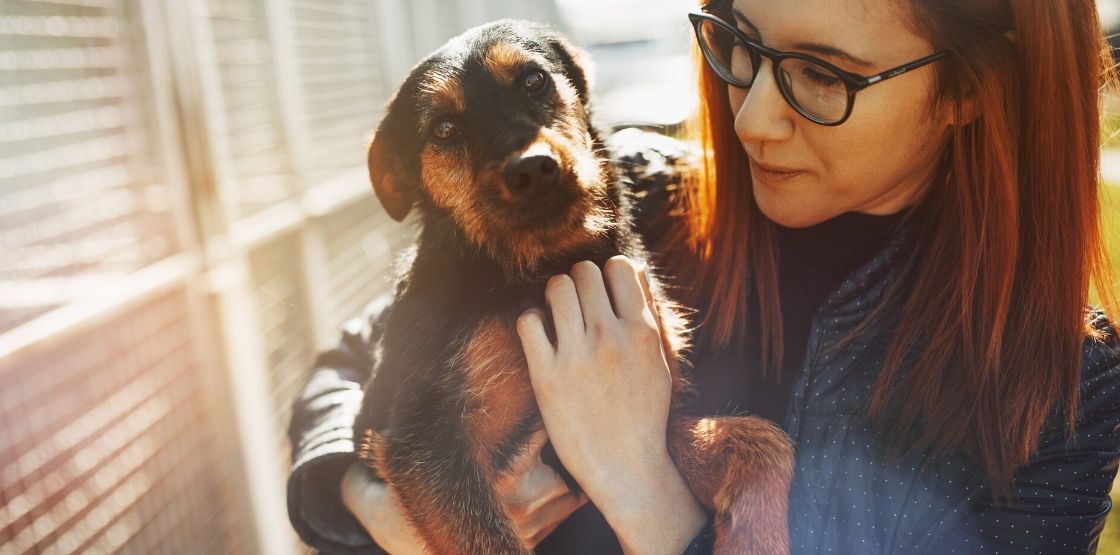What to Know About Adopting a Senior Pet
Senior pets are often the last to be picked for adoption. The puppies and kittens are generally the most active, so people are more likely to gravitate to them. This does not mean you should not consider a senior pet. Adopting a senior pet often means saving a life that would otherwise be euthanized. There are lots of reasons to consider adopting a senior pet. They have more predictable energy levels and a calmer temperament.
How to Adopt a Senior Pet
Adopting a senior pet is often no different than adopting a puppy, kitten, or adolescent animal. You will want to start by heading to the animal shelter or contacting a rescue group. It is important to take into consideration what you already have. Do you have a small yard and need a small pet? Do you have plenty of room for a Golden Retriever to run and play ball with you? After all, just because they are senior does not mean your Retriever will not play fetch.
You will want to fill out an application, providing references and supporting documents. Common forms needed are proof of home ownership or a letter of approval from a landlord stating that a new pet is welcome. If you already have a dog or cat, you might need to bring them in for a meet and greet with your new potential family member. This helps ensure that everyone will get along just fine.
Cons of Adopting a Senior Pet
The biggest con of adopting a senior pet is a shorter lifespan and more health issues. As far as health issues, most animal shelters and rescues have already had the pet evaluated by a veterinarian, so you know what you are getting into. These pets may be more prone to periodontal disease, kidney disease and arthritis, which can be addressed with a good veterinarian.
Pros of Adopting a Senior Pet
When adopting an older pet from the shelter or a rescue, they generally already have manners. Most of these pets are house trained and just need a little refresher to make sure they know what to do. They have socialized with people and tend to have predictable behaviors. Also, they are typically less destructive. Many young dogs and cats go through a search-and-destroy phase, where they chew remotes, tear drapes and shred pillows. Senior dogs and cats are usually calmer and more settled, so they do not destroy things in the house.
Senior pets are also predictable in their size and coat type. Unfortunately, younger pets, such as puppies, have no such guarantees, especially in a shelter environment. You will not know exactly how big they will get. Many times, senior pets are being rehomed because of issues like relocation or a death in the family.
A fun thing about senior pets is that they still have the capability to learn. Teaching your new pet new tricks can also help slow down the progress of aging as you work with them to learn new things. Even cats can learn new tricks. A senior pet seems to intrinsically know that you have saved its life, often repaying you with lots of love and kindness.
Senior pets make wonderful companions. They are generally not full of raucous amounts of energy, so you can spend time just hanging out on the couch and watching television with your new family member. Senior pets can also make great companions for senior citizens. Their calm personalities provide a relaxing source of comfort to senior humans and together they can generally move through life at a slower speed.
You May Also Like:
Related Search Topics (Ads):
What to Expect When Adopting a Senior Pet
While senior pets are often quite capable of learning, they may be set in their ways and need a little retraining. If they have any history, you will want to review it with the rescue group and potentially even schedule an appointment with your veterinarian to ensure that your new family member is caught up on their vaccines. This will help to uncover any health issues that were missed by the rescue.
You will also want to provide a calm and relaxing environment, so make sure you do not invite everyone in the family to meet the new addition on the first day. Give them time to get used to you and the family members in the household.
Integrating a Senior Pet Into Your Home
The first thing to do when bringing your senior dog home is introducing them to the house. If you already have pets, allow them to meet in neutral territory if you did not already have them interact at the shelter. This can mean taking the dogs for a walk together or letting the cats smell one another’s scents on a blanket or towel.
Even if you might switch their food later, try to feed them what the shelter was to minimize the possibility of gas. It is important to provide a calm and safe space for your new pet to go to if they start to feel overwhelmed, such as an open crate or spare bedroom. It usually takes around a week for a new dog or cat to feel comfortable in their environment, so do not coddle them too much, but allow them time to get used to everything.
Adopting a senior pet is a rewarding experience. After all, they need love, too. Allow them to adjust gradually you will have the love and affection you signed up for.

